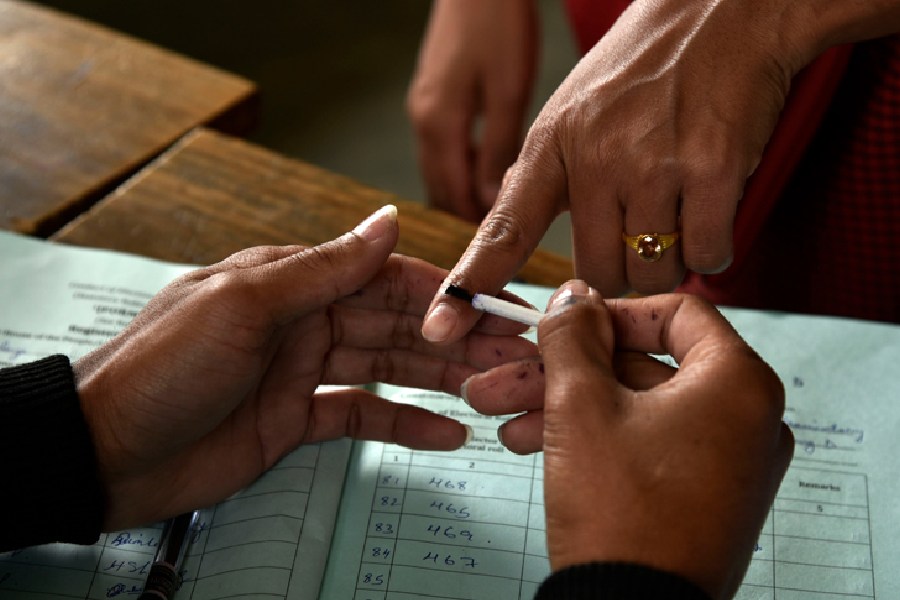Jamshedpur, Jan. 10: The drums of destiny echoed down the vast expanse of green.
The curious beats of the nagara, mandar, dholak and the thaal (traditional tribal percussion instruments) and the lilting notes of the basuri (wooden flute) merged into one pure strain ? joy. For music is the essence of the tribal soul. Each beat conveys a message ? steeped in lores of the land.
When the Sadans (original inhabitants) were attacked by wild animals, they beat nagaras to chase the beasts away. Strapping youths played soft melodies on the basuri to woo damsels and the vigorous rhythm of the thaal signified new birth. Every musical instrument used by the tribals has their own tale to tell.
A chat session on the significance of traditional musical instruments, hosted as part of the Jharkhand tribal festival ? Jhunur ? today threw up amazing facts.
Organised by Aastha, a city-based cultural organisation and the Union ministry of tribal affairs, the festival is an attempt to create awareness about the tribal musical instruments. It will feature cultural programmes, seminars, talk shows, workshops and live presentations of tribal music. Come January 12 and the sprawling Gudia Maidan in Birsanagar will reverberate with the sounds of nagaras, dhaak, dholak, banam and tohila on the concluding day of the festival.
Artists from different parts of the state, including a 12- member Nagpuri music team led by Mukul Nayak and Madal Samrat, will perform on the occasion. Explaining the significance of each instrument, Giridhar Ram Gaunjhu, reader, tribal and regional languages department of Ranchi University, said, ?The beats of nagaras resemble the thunder and the distant rumbling of an oncoming avalanche. So the original inhabitants of the land used it to scare away wild animals.? Taking time off his hectic schedule, Gaunjhu enthralled The Telegraph wih his knowledge of ancient musical instruments and their bearing on the ethnic ethos.
Gaunjhu, along with mandar exponents Manpuran Naik and Mukund Naik, conducted the talk show on tribal musical instruments at the community centre in Kasidih. Nagara, dhaak, dholak, banam, tohila, sarangi, titiyo, shankh, jhora murali and mohan basi, according to him, are the most common musical instruments in Jharkhand, used on various occasions.
The Nagara and the basuri are perhaps the most ancient. ?One will have to flip through history to find the origin of these ancient musical instruments,? he said.
He said the recent discovery of an iron cover of an ancient nagara in Khunti might throw more light on its history.











